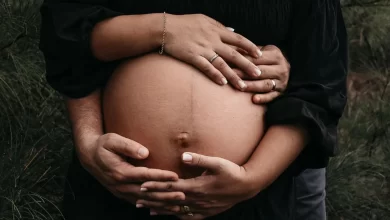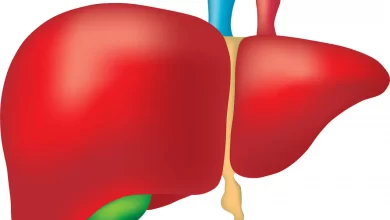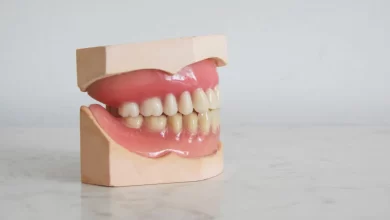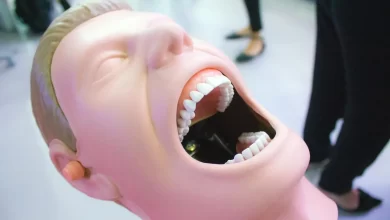Bacteria are microbes with a single cell. Because there is no nucleus or membrane-bound organelles, the cell structure is simpler than that of other organisms. A plasmid is an extra circle of genetic material found in some bacteria. The plasmid frequently contains genes that confer an advantage on the bacterium over other bacteria. Bacteria are also economically significant because we humans use these microorganisms for a variety of purposes. Bacterial benefits include the production of traditional foods such as yogurt, cheese, and vinegar. These are also important in the agriculture purpose mainly for the production of compost and fertilizer.
- Bacteria were first discovered in the year 1676 by Antoni van Leeuwenhoek who was a Dutch scientist.
- Bacteria can survive ten thousand times the dose of radiation that would kill a human.
- Bacteria are of five types which are: Mycoplasma, Spirillum, Rickettsia, Coccus, and Bacillus.
- There are more bacteria in your armpit than there are people in the world. It is the bacteria are that cause unpleasant odor on sweating.
- A kiss on the lips can transfer 80 million bacteria into another person’s mouth in just 10 seconds.
- Bacteria are the most abandoned life form on the planet earth.
- Most bacterium dies for each new one that is produced. Bacteria divide somewhere between once every 12 minutes to every 24 hours. So the average lifespan of a bacterium is around 12 hours or so.
- Bacteria divide and form new bacteria so quickly through Binary fission.
- Bacteria are found in three shapes spherical, cylindrical and spiral.
- It is as difficult for a bacterium to swim through water as it is for a human to swim through syrup.
- Bacterium (single bacteria) consists of one simple cell.
- Bacteria remain eternally young throughout their life.
- Bacteria are the oldest life form on the planet earth and are estimated to be living for around 3.5 billion years which is way before the existence of dinosaurs.
- A man who is about 70 kg, 20-30 years old, and 1.7 meters tall contains about 39 trillion bacterias.
- In total, we have about 1.8 m2 of skin, and more than 1.5 trillion bacteria live on it.
- Good bacteria are those which are beneficial for our body and enhances our health. One of the most well-known bacteria is probiotics. Most bacteria are good.
- There are over 99% bacteria that are good, and only 1% of bacteria are bad, which is known as pathogens.
- Curd may contain a wide variety of bacteria like Lactococcus lactis, Lactobacillus acidophilus, Lactococcus lactis cremoris, etc., whereas yogurt contains Lactobacillus bulgaricus and Streptococcus thermophilous.
- The bacteria found in curd are useful bacteria and vary from place to place. The number of different Lactobacillus bacteria isolated from curd preparations in India is about 250 species.
- Bacteria can live in cold and hotter temperatures than human beings, but they do best in a warm, moist, protein-rich environment that is low acidic and have a neutral pH. There are some exception bacterias too that live in extreme heat as well as extreme cold and can survive in highly acidic environments and extremely salty conditions.
- A good balance of bacteria in a human body comprises 85% good bacteria and 15% of bad bacteria.
- Scientists estimate that the total number of bacteria on our planet is about five million trillion – that’s a five with 30 zeroes after it. So there are far more bacteria on earth than there are stars in the universe.
- If all these bacteria are stretched in one line, they may reach the edge of our beloved universe.
- If bacteria were not there, life on earth would not have been possible.
- Chocolate is an antibacterial food and may fight against bacteria’s that cause tooth decay.
- The true number of bacterial diversity may be ranged from 107 to 109 of total species, and even these estimates may be off by many orders of magnitude.
- Actinomycetes bacteria are responsible for the soil smell when it starts raining.
- In a 200 pound (90.7 kg) adult, there are over 2 to 6 pounds (0.9 to 2.72 kg) of bacteria which also plays a vital role in the human body.
- When a human baby is born, it does not have any type of bacteria on its skin.
- There are over 20 billion bacteria in your mouth, and they reproduce every five hours. If you go 24 hours without brushing your teeth, those 20 billion multiplies to 100 billion.
- The computer keyboard can carry 200 times more bacteria than your toilet seat. Whereas A free gym weight carries 362 times more bacteria than a toilet seat.
- Bacteria Cells actually have the smallest eyeball in nature and, on the same hand, have the biggest eyes relative to their small size.
- Bacteria communicate with each other by sending electrical signals, and with the help of this, the colony of bacteria cells communicates and works together.
References
- Wikipedia-Bacteria
- Britannica-Bacteria
- News.bbc.co.uk(total bacterias that live on earth)
- Rdhmag.com(total bacteria in mouth)
- Bbc.com(bacteria on your keyboard)






